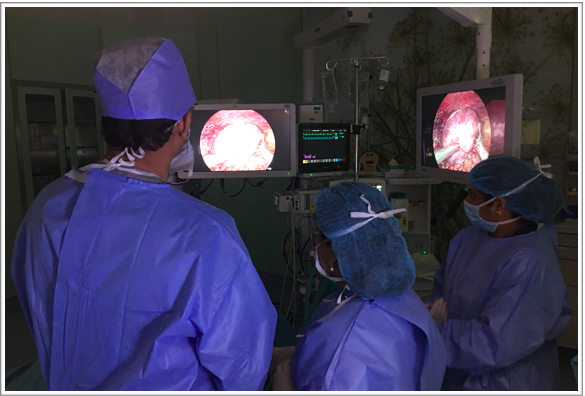
Minimally Invasive Thyroidectomy
From open to laparoscopic to endoscopic scarless thyroidectomy
The classical surgery for thyroidectomy was a charm for all surgical residents. The work up, the positioning of the patient, marking the incision, raising the flaps, division of strap muscles, exposure of gland, tying of pedicles, identification of recurrent laryngeal nerve and dissecting the gland of the trachea. The steps were delineated like a drill of a military troop and followed in precision from the consultant to the first year resident. The surgery would be conducted like an orchestra with a rhythm.
The only result would be a scar at a place, so noticeable, so marked, so visible, like a signature of the surgeon never to be erased. As with time, an attempt was made to change the position of the scar and yet maintain the integrity of the nature of the surgery and the approach.

We all were witness to the evolving changes from MIVAT to laparoscopic and later to even endoscopic approaches. What remained to see was the standardization of the techniques, the outcomes and most important the reproducibility of the technique in next batch of surgeons. It was no wonder that I was thoroughly impressed with the sequence of steps performed in tandem but with another access and approach. And it was not just an amateur effort. It was an experience of many cumulative cases put forward; published and performed and definitely, it was exhilarating.
The correct selection of patients being a mandatory requirement; this technique is here to stay. There is no compromise in the oncological principles and the familiarity with the laparoscopic instruments and the angles of the camera just enhances the experience. The creation of the space is standardized and the attention to the anatomical landmarks remains steadfast as it was decades earlier.
My regards to Dr. Padmakumar, who demonstrated the technique with a flair and we were host to a splendid surgical feast.




Comments are closed here.